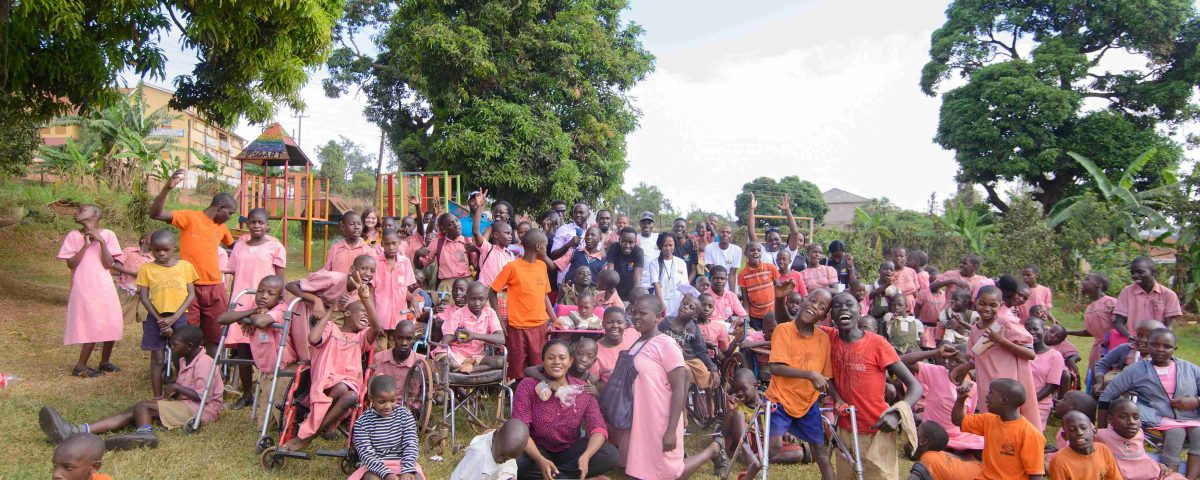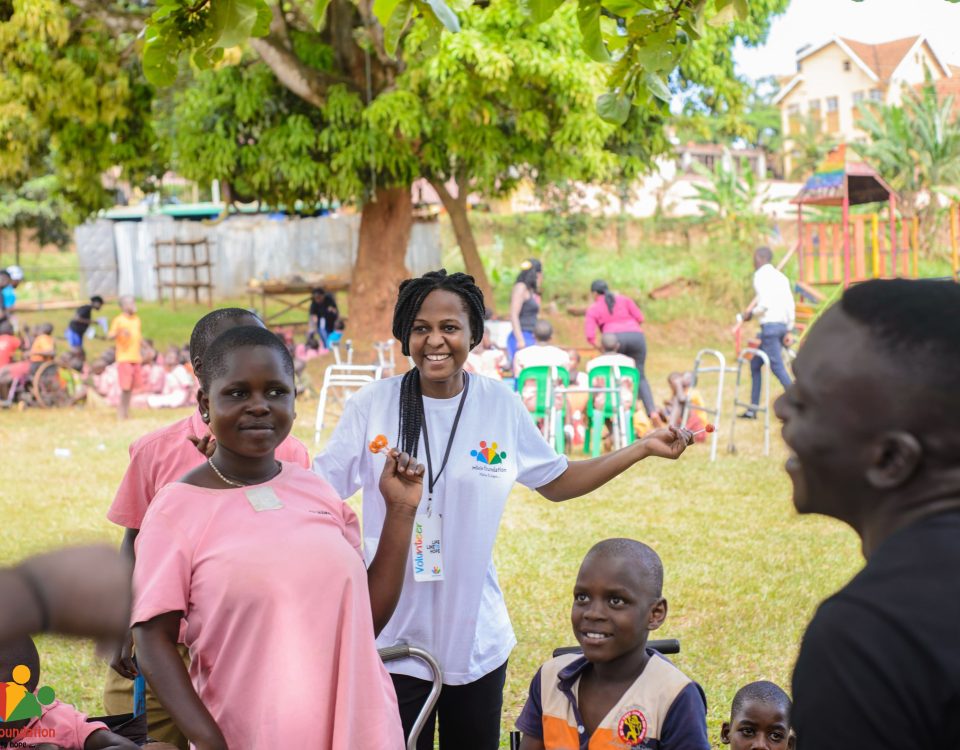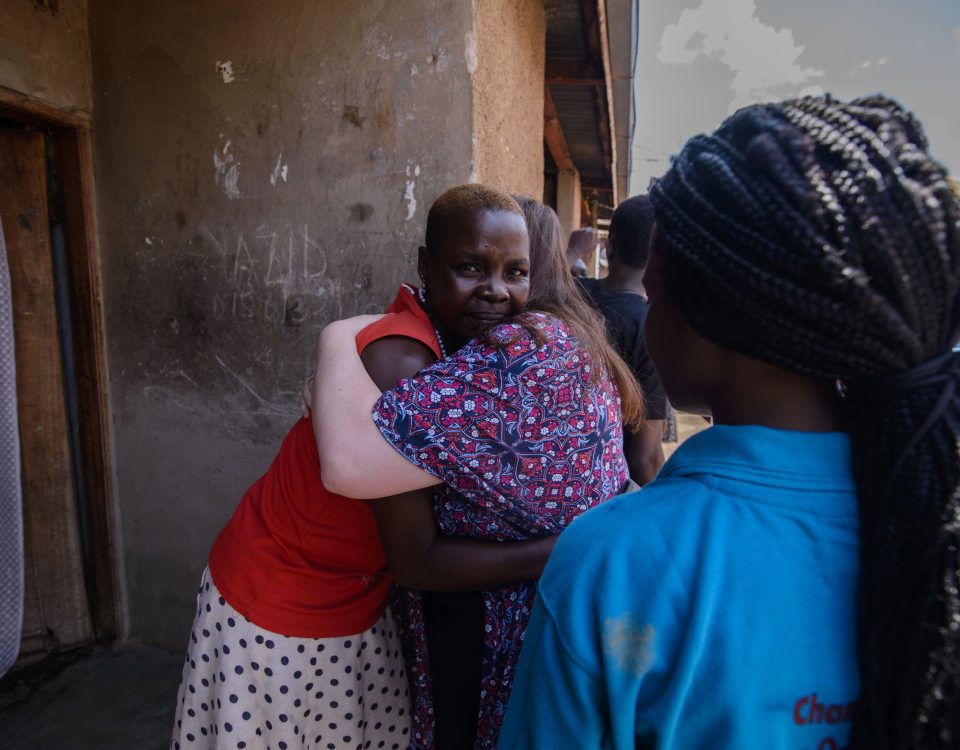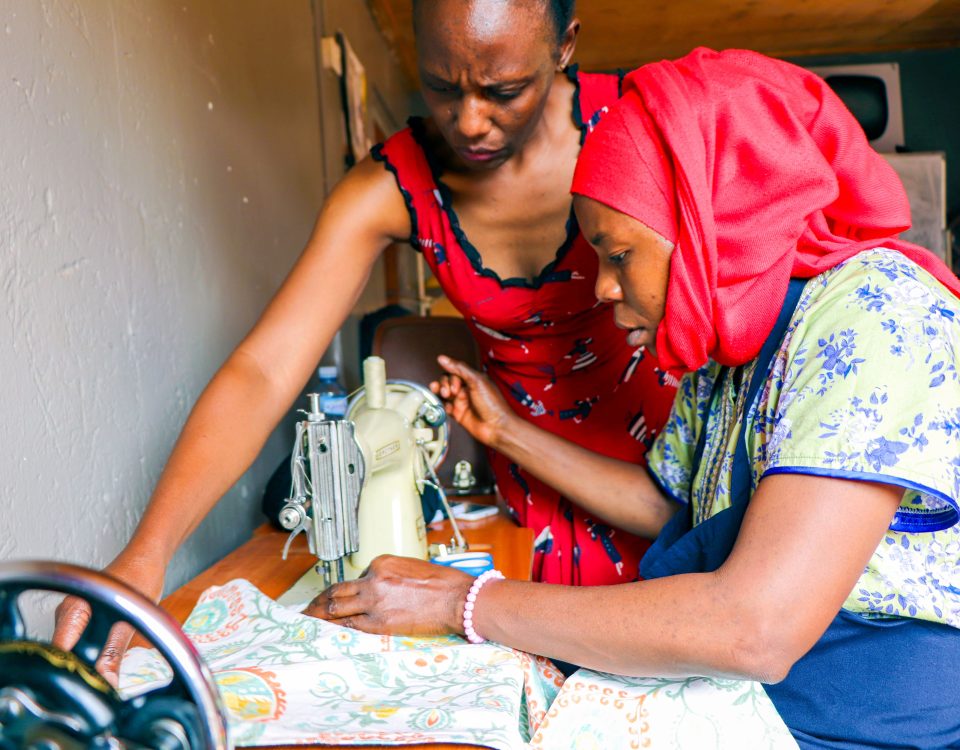
Benefits of Community Empowerment for Sustainable Development
June 5, 2024
Valentine’s Day with the Physically Handicapped Children at KSPH
February 19, 2025Mental health is a crucial aspect of well-being for everyone, but it can be especially overlooked for children with physical disabilities. These children often face unique challenges that can negatively impact their mental health, including social isolation, discrimination, and low self-esteem. Imagine a world where a child feels ostracized from playtime simply because they use a wheelchair. This is the harsh reality for many physically handicapped children.
Milele Foundation, a Ugandan organization committed to community empowerment tackles these challenges head-on through our innovative “Mental Wellbeing Program Among Physically Handicapped Children.”
This program prioritizes mental health by creating a safe and supportive environment where these children can thrive. Here, we’ll explore how Milele’s program addresses the specific needs of physically handicapped children and empowers them to reach their full potential.
Building Bridges of Understanding:
One of the biggest hurdles faced by physically handicapped children is social isolation. They may struggle to connect with peers or feel excluded from activities. Milele’s program bridges this gap by fostering a culture of understanding and inclusion that extends beyond the classroom walls. Here’s how:
-
Community Outreach Programs: Milele organizes outreach programs that engage the broader community, including religious and non religious organizations. These programs raise awareness about the unique needs and challenges faced by physically handicapped children. By dismantling societal biases and fostering empathy, the program paves the way for a more inclusive environment in all aspects of a child’s life.
-
Peer Support Programs with a Twist: Building on the traditional buddy system, Milele’s program incorporates a unique element – “ability swaps.” This involves pairing physically handicapped children with their classmates for activities that highlight each other’s strengths. For example, a child with limited mobility might be paired with a peer who excels at storytelling, creating a collaborative playtime experience that fosters understanding and appreciation of diverse abilities.
By extending the focus on inclusion beyond the classroom walls and fostering connections within the community and family, Milele’s program creates a support network that empowers physically handicapped children to feel valued and accepted.
Cultivating Hope and Confidence: Beyond Therapy Sessions
The program goes beyond addressing social challenges. It also recognizes the importance of nurturing a positive self-image and fostering hope for the future. Mental health professionals conduct individual and group therapy sessions specifically designed to address the unique anxieties and emotional struggles faced by physically handicapped children.
Here’s how Milele’s program goes a step further:
-
Mentorship Programs with Role Models: Milele pairs physically handicapped children with mentors who share similar experiences or disabilities. These mentors act as role models, demonstrating that one’s physical limitations don’t hinder success. Interaction with mentors provides inspiration and fosters a sense of self-belief.
-
Positive Psychology Techniques: The program incorporates positive psychology techniques like gratitude exercises and goal setting. Children are encouraged to identify things they are grateful for in their lives, big or small. This fosters a sense of optimism and appreciation for their own capabilities. Additionally, goal setting empowers them to envision a positive future and take ownership of their progress.
-
Creative Expression Workshops: The program offers creative expression workshops like music therapy and dance therapy. These workshops provide a safe space for children to express themselves freely and explore their emotions. This can be particularly helpful for children who may struggle to articulate their feelings verbally.
By creating a holistic approach to mental well-being that extends beyond therapy sessions, Milele’s program empowers children to develop emotional resilience, cultivate a positive self-image, and embrace a future filled with hope and possibility.
Empowering Stakeholders for Lasting Impact: Building Mental Health Champions
Sustainability is a key focus for Milele. The program doesn’t just provide temporary support; it aims to create long-term change. By equipping parents and teachers with the knowledge and tools to identify and address mental health concerns, the program empowers them to continue supporting the children’s well-being long after the program has concluded. Here’s how Milele builds mental health champions within the community:
-
Mental Health Training for Teachers and Parents: The program equips teachers and parents with the knowledge and skills to create inclusive classrooms and home environments. Workshops cover topics like recognizing signs of anxiety and depression in children with physical disabilities, implementing positive reinforcement techniques, and fostering open communication. This empowers them to become advocates for the children’s mental health and well-being.
-
Collaboration with Mental Health Professionals: Milele fosters partnerships with local mental health professionals to ensure ongoing access to specialized care for children who require additional support. This collaboration ensures a comprehensive and sustainable approach to the program’s goals. By building a network of mental health professionals within the community, Milele ensures that children can continue to receive the support they need.
The Ripple Effect: Building a More Inclusive Future
Milele Foundation’s Mental Wellbeing Program goes beyond serving the immediate needs of physically handicapped children. The program creates a ripple effect, fostering a more inclusive and understanding environment for all children within the community. Here’s how:
- Reduced Stigma and Discrimination: By raising awareness about the challenges faced by physically handicapped children, Milele’s outreach programs contribute to a shift in societal attitudes. This dismantles stigma and discrimination, fostering a more inclusive environment where all children feel valued and respected.
- Empowering Bystanders: Witnessing the positive impact of the program, other community members are inspired to become advocates for inclusion. This can involve acts of kindness towards physically handicapped children or simply speaking up against discriminatory behavior. This creates a domino effect of positive change within the community.
- Building a Culture of Empathy: Milele’s program fosters a culture of empathy and understanding not just for physically handicapped children but for all those facing challenges. This creates a more supportive and compassionate environment for everyone within the community.
A Beacon of Hope for mental health:
The Milele Foundation’s Mental Wellbeing Program serves as a beacon of hope, not only for physically handicapped children but also for the entire Ugandan community. By prioritizing mental health, fostering inclusion, and building capacity within the community, Milele empowers these children to thrive and reach their full potential. The program’s impact extends far beyond the children themselves, creating a ripple effect of positive change that fosters a more inclusive and supportive environment for all.
Call to Action: Become a Champion for Mental Wellbeing
Mental health is an essential part of overall well-being for everyone, regardless of ability. Milele Foundation’s program is a testament to the transformative power of prioritizing mental health. While the program operates in Uganda, the message of inclusion and support for children facing challenges resonates universally.
Here are some ways you can become a champion for mental wellbeing in your own community:
- Educate Yourself: Learn more about mental health challenges faced by children with disabilities.
- Spread Awareness: Talk to friends, family, and colleagues about the importance of mental health and inclusion.
- Challenge Stigma: Speak out against discrimination and promote understanding.
- Support Organizations: Donate or volunteer your time to organizations working on mental health issues.
By taking action, even in small ways, we can all contribute to creating a world where all children, regardless of ability, feel supported, valued, and empowered to thrive.




